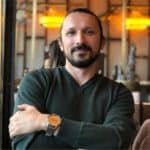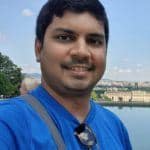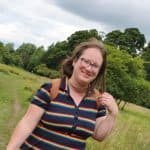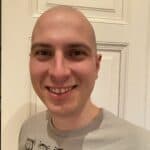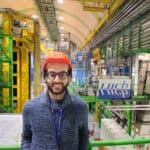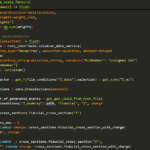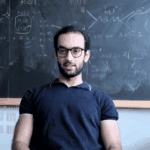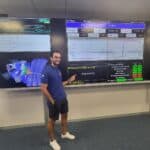Profile
Ahmed Abdelmotteleb
-
About Me:
I live with my wife in Coventry. I love learning how the world works. Outside of work, I enjoy playing football, playing the drums, going on hikes, learning languages, and playing video games. I also love cats!
-
Read more
I have a deep passion for science and technology, and I spend a lot of time watching YouTube videos about the latest innovations and discoveries (and cats). I’m also a lifelong Manchester United supporter. I’ve been a fan since I was seven, and part of the reason I chose to study at the University of Manchester was to be close to Old Trafford and support the team in person.
In my free time, I enjoy playing video games on my PC, especially first-person shooters. Battlefield 3 is my all-time favourite, though I also enjoy Call of Duty, particularly the campaign modes. I love playing football as well, especially 5-a-side rather than full 11-a-side matches. I used to compete in sprinting at a national level, focusing on the 100m and 200m. I also like going on hikes and exploring new places.
I really enjoy learning languages. I speak Arabic as my mother tongue, along with English, French, and Spanish. I’m also learning Portuguese because I hope to move to Portugal one day. I’m also a huge fan of pizza. Once, when my family went away and left me home alone as a teenager, I had pizza every single day for a week.
Music is another big part of my life. My favourite genres are hard rock and metal, though I also enjoy hip-hop and EDM. That love for music led me to learn how to play the drums. I tried guitar first but didn’t enjoy it as much.
-
My pronouns are:
he/him
-
My Work:
I work in particle physics, studying the fundamental building blocks of matter and how they interact, using data from the LHCb experiment at CERN.
-
Read more
I work on the LHCb experiment at CERN in Geneva, Switzerland, where we study the fundamental particles that make up everything in the universe. My research focuses on W bosons, which are produced in high-energy collisions. These particles play a crucial role in the weak force, one of the four fundamental forces of nature, responsible for processes like radioactive decay.
To carry out my work, I analyse large amounts of data using advanced computing techniques and a combination of Python and C++. I am always on the lookout for patterns that could hint at new physics beyond our current understanding.
Particle physics is incredibly collaborative, so I often travel to present my work at conferences, take part in workshops, and meet with researchers from around the world to share ideas, solve problems together, and plan future experiments.
I also like to think about new technologies and how I can apply it to my research like using AI, Machine Learning, Quantum Computers, and many others!
-
My Typical Day:
I wake up at 7:30 and have breakfast. I arrive at work by 9 am, where I focus on problem-solving across several projects. Since particle physics is a highly collaborative field, I sometimes spend a lot of time in meetings. I have lunch with colleagues and friends at noon, then return to work until 5 pm. After that, I head home to relax and spend time with my wife.
-
Read more
My typical day starts around 7:30 in the morning with breakfast to get ready for the day ahead. I usually arrive at work by 9 am. My main tasks involve solving problems related to different research projects. These problems can range from improving how we analyse data to designing new methods to search for interesting physics signals.
Particle physics is very much a team effort, so sometimes I get to have meetings with different colleagues from all over the world! These meetings give me the chance to discuss progress, share ideas, and plan next steps. Collaboration is essential because we combine expertise from many people to understand the complex data from the Large Hadron Collider. We often have interesting ideas shared and debated during these discussions.
Around noon, I take a break to have lunch with colleagues and friends. After lunch, I return to work until about 5 pm, often writing or improving computer code to process the huge amounts of data collected from particle collisions.
Once I finish work, I go home to unwind. I enjoy spending time with my wife and relaxing after a busy day. Maintaining a balance between work and personal time helps me stay focused and motivated.
One thing to note is that research work is fairly flexible. I don’t always have to start at 9 am – many of my colleagues arrive around noon and finish up later in the day. You can also work from home since all you need is a laptop and internet access to run analysis codes, access data, and join meetings online.
-
What I'd do with the prize money:
I would use the prize money to teach the public about the fascinating and sometimes wacky world of quantum physics. Quantum physics can be very interesting but also quite counter-intuitive, which makes it both challenging and exciting to understand. I believe that using real-life demonstrations of quantum phenomena would help spark curiosity and make these complex ideas more accessible. Bringing this “bizarre” branch of science to life could inspire more people to explore and appreciate the wonders of physics.
For example, I could demonstrate quantum superposition using simple light experiments with lasers and polarizing filters, which are affordable and safe for public events. To explain quantum entanglement, I could use pairs of polarized photons generated from inexpensive laser pointers and filters, combined with interactive activities to illustrate how particles can be linked even over distances.
To show quantum tunnelling, I could use everyday analogies like balls rolling over hills and barriers, supported by animations or simple electronic circuits to visualize the concept. Using materials like LED lights, mirrors, lenses, and cardboard, I can create engaging hands-on setups.
I would also incorporate freely available online simulations and videos, which can be excellent tools to illustrate quantum phenomena in an interactive way.
Another exciting interactive approach would be to use virtual reality (VR) headsets. VR can immerse participants in a 3D quantum world where they can visualize and explore phenomena like superposition and entanglement firsthand. We can also use existing VR games developed by major experiments, such as the ATLAS experiment at CERN and the Super-Kamiokande experiment in Japan, to give people a unique and immersive experience of particle physics research.
-
Education:
I went to a highschool in Cairo, Egypt, at the Egyptian Language School. I was part of the British division at the school, and did IGCSEs and A-levels. For A-levels, I did Maths, Physics, Chemistry, and Arabic. Although, in hindsight, I could have also done Further Maths, but I was a scared of advanced maths back then!
I then received my MPhys degree (integrated masters) from the University of Manchester, where I actually focused on doing more theoretical courses and courses related to Particle Physics.
Finally, I received my PhD in Physics from the University of Warwick, where I focused on analysing physics data and software development.
-
Qualifications:
When I was in highschool, I did 8 O levels and 4 A levels. I also did SATs (American system) because I wanted to apply to US universities. In hindsight, I am glad I stuck with the UK system and went to uni at the UK because now I get to do what I love in a brilliant environment.
-
Work History:
I’ve always known I wanted to be a researcher, which is actually quite uncommon. Pursuing particle physics research usually means earning a PhD, and after completing mine, I continued as a Postdoctoral Research Associate at the University of Warwick, getting paid to do what I truly love.
During my time as a student at Manchester, I also worked part-time as a steward at Old Trafford, the home of Manchester United. This job sometimes allowed me to be inside the stadium to watch games while getting paid, which was an unforgettable experience. As a PhD student, I also worked part-time as a teaching assistant, helping first- and second-year physics students by answering their questions and grading assignments and exams.
-
Current Job:
I am currently employed as a Postdoctoral Research Associate, working on developing software for the TORCH detector, which is planned to be installed at the LHCb experiment at CERN in 2033. I also contribute to several physics analyses, aiming to deepen our understanding of particles and how they make up the universe around us. Additionally, I lead the “Innovative Analysis Technologies” workgroup at LHCb, where I encourage and support people in exploring new technologies such as machine learning, quantum computing, and more.
-
Employer:
The University of Warwick – Elementary Particle Physics group (LHCb)
-
My Interview
-
How would you describe yourself in 3 words?
cat-loving data-driven problem-solver
What did you want to be after you left school?
A researcher in quantum physics
Were you ever in trouble at school?
No
If you weren't doing this job, what would you choose instead?
Psychology
Who is your favourite singer or band?
Poets of the Fall
What's your favourite food?
Pizza
If you had 3 wishes for yourself what would they be? - be honest!
Abundant wealth - make a meaningful, positive impact on humanity - feel a deep, lasting satisfaction with my life
Tell us a joke.
Two wind turbines in a field, one turns to the other and says: "So what kind of music are you into?" The other looks down for a second. "Well, I'm a big metal fan."
-

